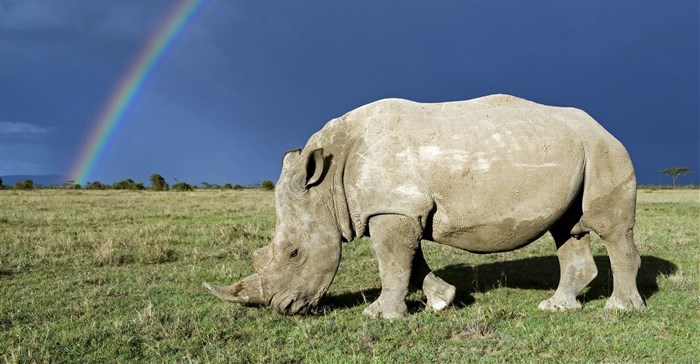
South Africa's Minister of Environmental Affairs, Edna Molewa, revealed that 1,175 rhinos were lost in South Africa in 2015 - slightly down from the record 1,215 in the previous year.
"After seven years of increases, a decline in the rate of rhino poaching in South Africa is very encouraging and the result of the government's leadership and the tireless efforts by so many committed people - but sadly the overall rate remains unacceptably high," says Dr Morné du Plessis, CEO of WWF South Africa.
The poaching figures were released a day after the South African High Court dismissed the government's application to appeal an earlier ruling lifting a moratorium on the domestic sale of rhino horns.
"We supported the minister's appeal and are disappointed by this decision. There is no market for rhino horn in South Africa so lifting the domestic ban is likely to encourage more illegal activity," says Du Plessis. "It will also make it even harder for already overstretched law enforcement agents to tackle rhino horn trafficking."
While poachers are still focusing primarily on South Africa, official figures from Namibia and Zimbabwe suggest that criminal networks are expanding their reach across the region - targeting rhinos in previously secure areas.
In Namibia, 80 rhinos were lost to poachers in 2015 - up from 25 in 2014 and just 4 in 2013. In Zimbabwe, 50 animals were killed - more than double the previous year's total.
These three countries are home to nearly 95% of all remaining African rhinos.
"We desperately need coordinated international efforts by police and other law enforcement agencies to combat the organised criminal syndicates trafficking rhino horn across southern Africa and beyond," says Dr Jo Shaw, Rhino Programme Manager for WWF-South Africa. "Major transit and consumer countries, such as Mozambique and Vietnam need to take urgent steps to stop the trafficking and buying of illicit wildlife products."
Last week, the Convention on the International Trade in Endangered Species of Wild Fauna and Flora (CITES) Standing Committee ruled that Mozambique and Vietnam should report on a range of activities targeted at stopping rhino crimes by 30 June 2016, including improved prosecutions and the use of specialised investigation techniques to expose those organising the illegal trafficking.
"Reopening South Africa's national rhino horn trade goes against CITES which urges all parties to adopt and implement comprehensive legislation and enforcement controls, including internal trade restrictions and penalties, aimed at reducing illegal trade in rhino horn," says Shaw.
WWF emphasises that stopping rhino poaching requires not just a law enforcement response, but also the involvement of local communities around protected areas.
"The infiltration of these communities by sophisticated criminal gangs not only threatens rhinos, it also compromises the safety and sustainable development of the people living in these communities," Shaw concludes.
"Local communities can help tackle wildlife crime, but only if they see themselves as active partners in conservation with a real stake in protecting wildlife, not just as pawns in a fight between law enforcement officers and international criminal syndicates."